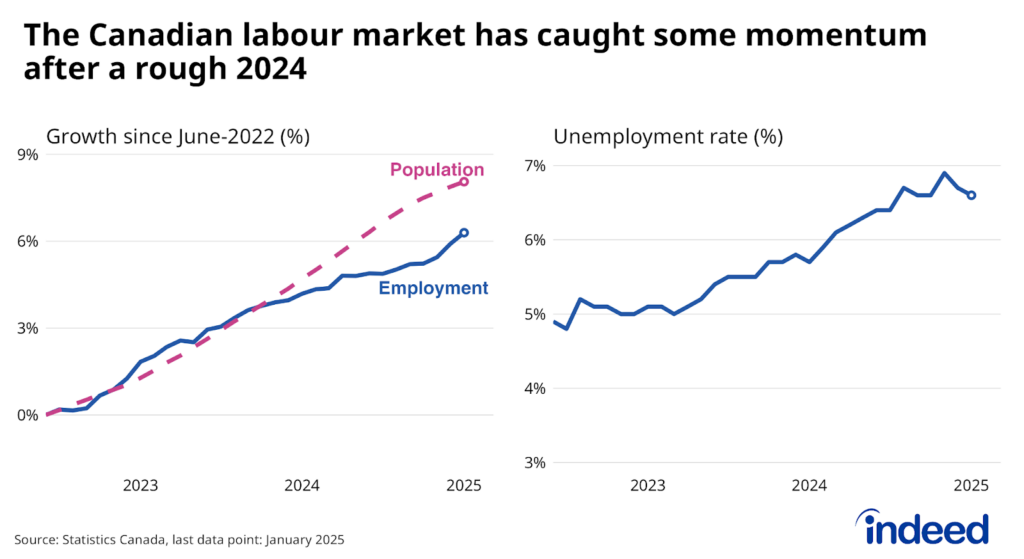Key Points
- The share of Canadians actively looking for work ticked down in November, from 30% to 28%, with somewhat less job search activity among those both working and not.
- Urgent unemployed job search remained elevated in November despite edging down from October levels, when it jumped prior to the wind-down of the Canada Recovery Benefit.
- Job seeker confidence in finding new work is stronger in November than during the summer, fitting with the recent string of solid employment numbers reported in the Labour Force Survey.
Canadian job search activity ticked down in November according to the latest Indeed Job Search Survey. Overall, 28% of adults aged 18 to 64 surveyed between November 8-25 reported actively looking for work, a statistically significant decrease from the 30% on the job hunt in October.
Search activity eased among both those working and not, though the decline was only statistically significant among those out of work. The share of jobless Canadians actively looking for work fell back to 35% from 39% in October, though it remains up from 32% in September, reflecting still elevated levels of urgent unemployed search. Meanwhile, the share of employed workers on the job hunt ticked down from 26% to 25%.
Urgency remains up post-Canada Recovery Benefit
The wind-down of the Canada Recovery Benefit (CRB) on October 23, is a likely contributor to the rise in urgency among unemployed job seekers. This shift has been especially substantial among those who’ve been looking for work for an extended period. In November, 70% of unemployed job seekers who’d been searching for over six months described their search as urgent, well above the 41% to 51% range during the third quarter. Meanwhile, roughly half or those who’d been searching for six months or less described their search as urgent, up from between 40% during the summer.
While there appears to have been a notable impact from the end of the CRB on respondents’ job search patterns, it’s less clear how impactful the end of the program was in the November Labour Force Survey. Long-term unemployment did see a noticeable decline, but Statistics Canada also reports just 4.9% of all those who entered employment in November were previously receiving the benefit.
Job seeker confidence higher than the summer
The end of the CRB further raises the importance of Canada maintaining strong employment gains in the months ahead. Job seeker confidence in finding new work is decidedly higher among employed job seekers, with 55% in November at least somewhat confident they can find a job in the next month, while 39% of the unemployed feel the same. Nonetheless, both shares are above where they stood mid-summer, although the difference compared to July levels is only statistically significant among those currently employed. With Canadian job postings on Indeed continuously hitting new highs, opportunities for new work are fairly abundant.
Methodology
This blog post is based on separate online surveys of 4,000 Canadian adults ages 18-64 conducted on July 15-20, August 9-23, September 13-29, October 11-20, and November 8-25. The survey was conducted among various general population survey panel audiences. Indeed awareness, use, or otherwise was not a requirement for participation. There was no mention of Indeed or any other job sites in the survey and respondents were not aware that the survey was sponsored by Indeed.
Weights were applied to match respondent distributions across age, educational attainment, and time spent in Canada with the Labour Force Survey public-use microfile data from January 2021 through June 2021. Due to a slight change in methodology in calculating population weights, numbers may not exactly match prior reports.






